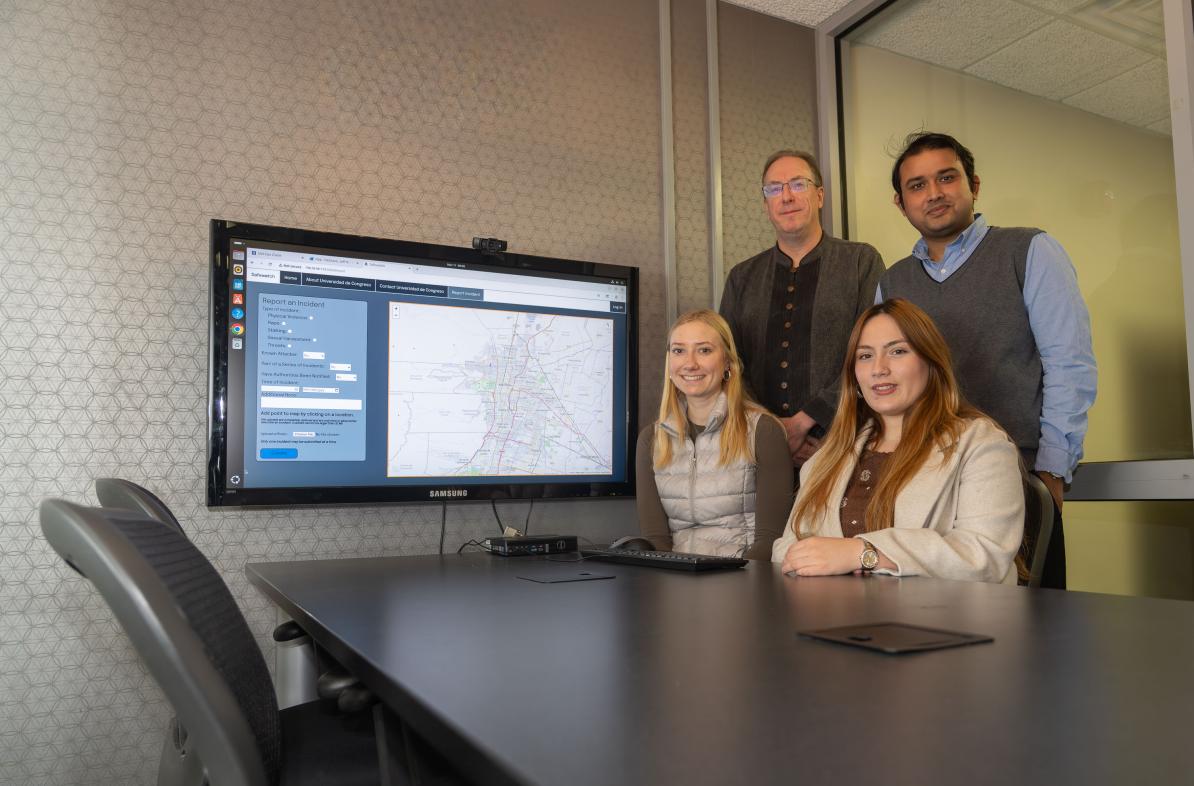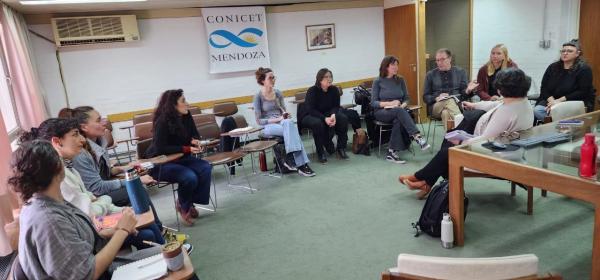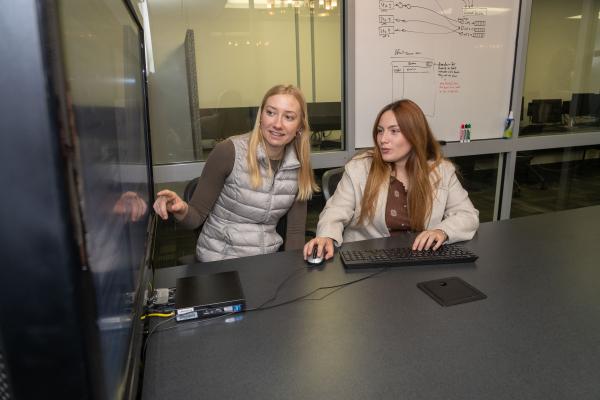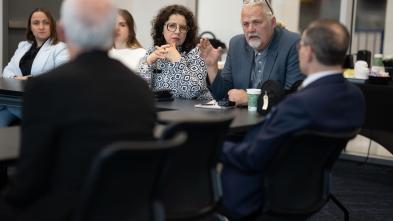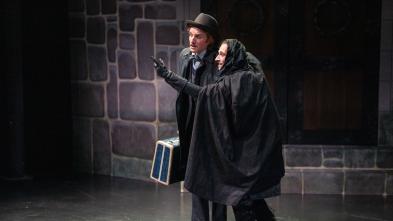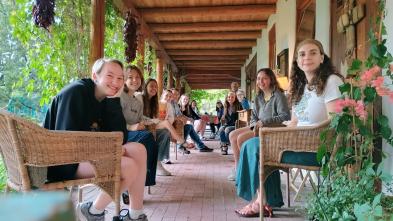International project now interdisciplinary as well
DeGrave says he has understood for years this project would eventually need significant help in the final phases of the technology — help he was quite certain he would find in UW-Eau Claire’s computer science department.
“I went to our colleagues in computer science with no particular ask, as we were open to their ideas of how best to lend their student and faculty expertise to our project,” DeGrave says. “Dr. Rahul Gomes and Dr. Benjamin Fine have come up with a wonderful solution that will incorporate a spring capstone course through the computer science department, giving talented and eager Blugolds degree credit for final development of the mobile application.”
Expanding the scope of this project is in keeping with UW-Eau Claire’s tradition of promoting interdisciplinary research opportunities. Gomes, associate professor of computer science, says this new capstone is a win for all involved, not the least of which being potential global users of the technology.
“This collaboration highlights the interdisciplinary strength of UW-Eau Claire’s approach to research and teaching,” Gomes says.
“The project brings together students and faculty from computer science, biomedical engineering and Spanish/Latin American studies, each contributing a different perspective rooted in technical implementation, human-centered design and cross-cultural communication.”
He explains that the computer science students will work alongside their peers from other majors to translate community-based feedback from Argentina into tangible software improvements, ensuring that the app remains both functional and culturally sensitive.
DeGrave has also added a second primary student researcher to the efforts. Rosana Fernandez Vila, a junior biomedical engineering major from Valencia, Spain, has joined the project with an interest in analyzing coding, creating mobile apps and lending her native language in translating the app from English to Spanish.
“Coming from another country, it makes me happy to see how this kind of project can have an impact on people all over the world,” Fernandez Vila says.
“The idea that this app could help someone communicate important information or report a sensitive situation, like sexual abuse, makes the work feel very meaningful,” she says.
This sentiment is echoed by Gomes as he points out the importance of cross-disciplinary collaborations.
“It is a powerful example of how Blugolds learn to turn their technical and cultural knowledge into tools for a meaningful global impact,” Gomes says.
For DeGrave, seeing this once-abandoned research project now on the verge of crossing the finish line and becoming a viable product in 2026 is gratifying for many reasons.
“The human issues in the countries where we take our students for immersion programs become very important to me, and not just academically. These are heavy issues,” DeGrave says. “An idea about a way to help people that was pulled through immersion programming in four Latin American countries and is now making its way to an interdisciplinary technological reality on this campus — it’s a great research success story for our students and for our international partners.”
Top image caption: The research team, from left: Senior Avery Dresel, Dr. Jeff DeGrave, junior Rosana Fernandez Vila and Dr. Rahul Gomes.
